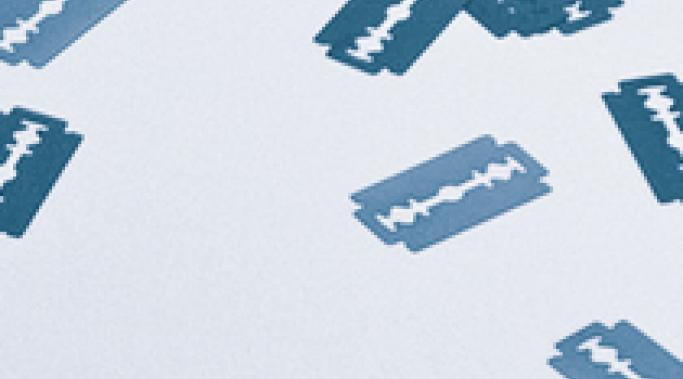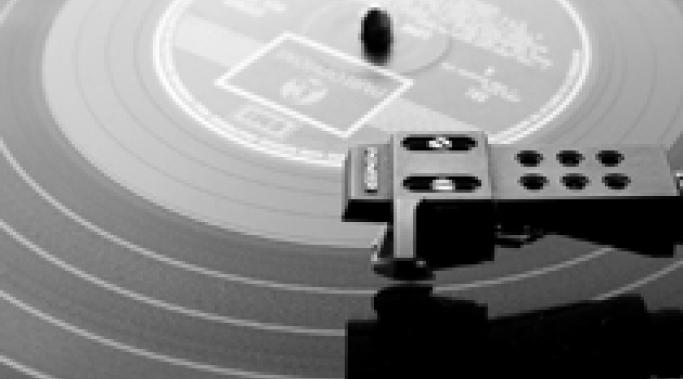We all know the joke that "normal" is just a setting on the dryer (it's also a street name here in Indianapolis), but let's face it--we have a normal (for us) mode of operation. Mental health professionals call this "baseline." Some people have high baselines and can pass for someone who does not have a psychiatric diagnosis. Others have a low baseline and wander around in public talking to themselves--I have a few neighbors like that. But we all have a borderline baseline.
Borderline Symptoms
Three times a week, I go to Alcoholics Anonymous (AA) meetings and say "My name is Becky, and I'm an alcoholic." I've been doing this for a little more than a year now, and the further along I get in sobriety, the more I learn. There are many myths about alcoholism, some of which I'm still learning to accept as myths. But recognizing these myths as such is crucial to recovery from addiction.
My diagnosis of borderline personality disorder (BPD) is somewhat controversial; one doctor said it might be more accurate to say I have "traits of borderline." Whatever the words, I have at least one symptom of BPD--I self-injure. That's easy to define, but hard to explain. Here's my story.
Are your symptoms of borderline personality disorder flaring up with no apparent cause? Sometimes a major purchase can trigger symptoms of borderline personality disorder (BPD). Instead of the buyer's "high" that comes with something new, buyer's remorse can be felt. The resulting sadness can cause symptoms of BPD such as self-harm.
Some say that art can be therapeutic. Music is no exception. Recently, I've discovered three songs that are, as far as I know, not about borderline personality disorder (BPD), but do a remarkable job describing it. The songs are Meredith Brooks's Bitch, Billy Joel's She's Always a Woman to Me, and Natalie Merchant's My Skin.
I'll be the first to admit I'm a gamer. I love playing video games, especially open-world role playing games such as The Elder Scrolls series and the Assassin's Creed series. I'm even a member of the Video Game Voters Network, an organization dedicated to recognizing video games as free speech. So I make it a point to keep up on news related to video games.
You're probably wondering "What does this have to do with mental illness?" Well, according to the New York Daily News, video game addiction is often a symptom of depression or anxiety.
On Monday, Aaron Alexis went into the Washington Navy Yard and started shooting. Within hours his mental state was questioned--we're now learning Aaron Alexis had a psychiatric history and "slipped through the system". While there is no definite link between mental illness and a risk of violence, there is a pattern emerging between mass shooters and inadequate mental health treatment. (read: Should People with a Mental Illness have Firearm Rights?) There but for the grace of God, go I.
I love hearing from my readers. The other day, one wrote:
"[T]he facility here in a Central Florida receiving center puts everyone together, whether they be folks who are well in touch with reality; but are having emotional issue, or they be folks who are totally out of contact with reality. Everything is "dumbed down" (I do not like using that term, but I cannot think of one better) to those who don't know front from back, so to speak. I know there is a shortage of beds, but it would help if those of us who are aware, so to speak, would be treated as such. Sadly, for those who are not in touch, there seems to be no long-term place for them, and that is not right."
She hit the nail on the head. Mental health treatment is often treated as "one size fits all", which makes it difficult for people to get the treatment they need.
It seems to make no sense. Why would any individual self-injure? Self-injury is so closely associated with borderline personality disorder (BPD) that some psychiatrists will make that diagnosis automatically if a patient self-injures. But why would someone self-injure? There are three main reasons: to punish themselves, to regulate their emotions, and to express their pain.
I have two mental health warning signs that alert me to psychiatric danger. Each one serves to warn me what type of danger I'll be in. Knowing these "early warning signs" is crucial to surviving my Borderline Personality Disorder diagnosis.









